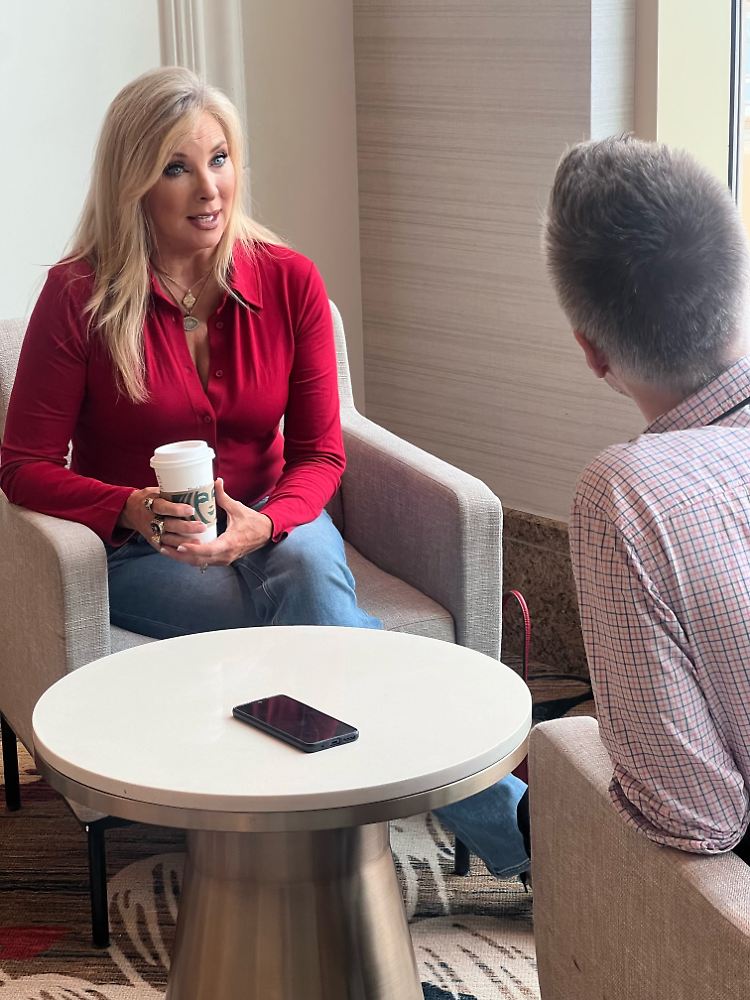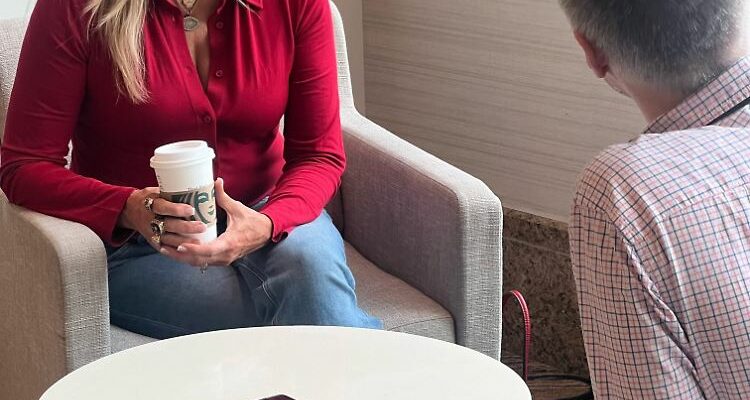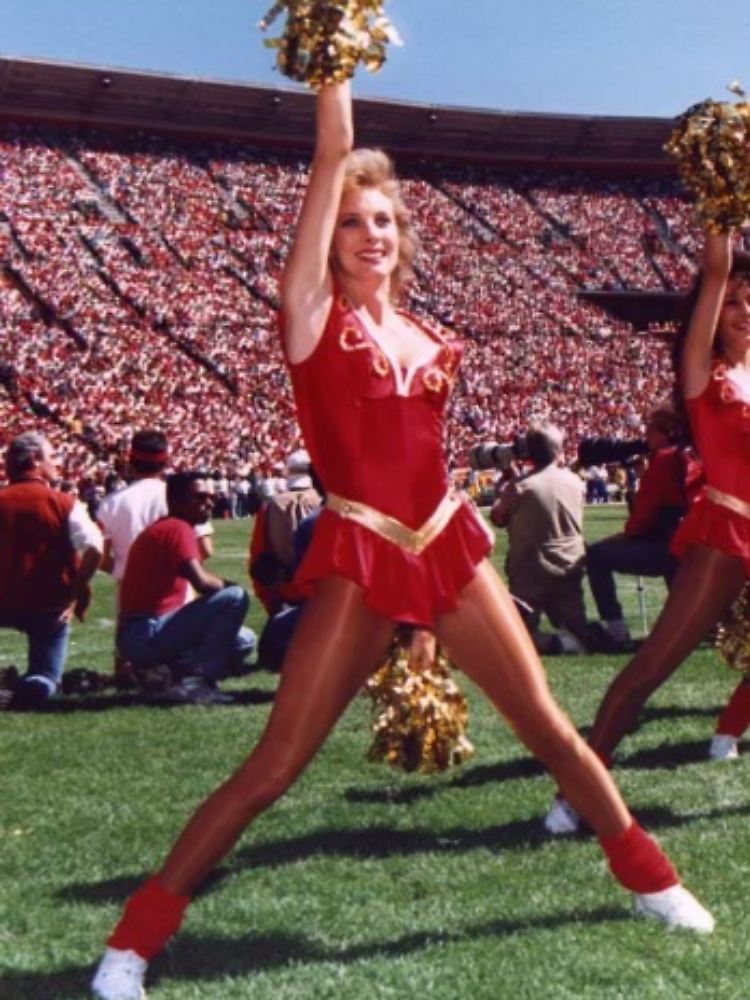Many women and girls in the United States dream of a career as an NFL cheerleader and a Super Bowl appearance. But behind the facade there are sometimes terrible working conditions, exploitation and attacks. The NFL is doing little to improve things, but the cheerleaders represent a global problem.
“Back then, when we stepped onto the field, no one had any idea of the extent of it,” says Angela King. “We didn’t realize what story we were going to write. Dancing there in front of the roar of 70,000 people was just an insane feeling of awe. A rush.” King was part of the San Francisco 49ers’ first cheerleading team in 1983 and talks to ntv.de about a job that not only changed her life.
Because 40 years later, cheerleaders are as much a part of American football as touchdowns, hot dogs and the Super Bowl. They are American icons, putting on the perfect show with bright smiles, provocatively dressed bodies in skimpy, tight outfits and sparkling pom-poms. This is how they lead the audience’s applause and entertain them. In the USA, cheerleaders are nothing less than a cultural phenomenon.

Angela King wears her Super Bowl rings in Las Vegas, which she received for her cheerleading performances with the 49ers.
(Photo: David Needy)
But behind the facade there are sometimes terrible working conditions, exploitation and attacks. Most of the time, criticism and complaints disappear unnoticed under the radar – and the show goes on. The show must go on. This was also the case this Sunday at the Super Bowl in Las Vegas, a city that stands for this motto like no other. And the NFL is still doing too little to improve things; some club executives who are responsible for the evil acts sit in the audience clapping.
Cheerleaders want fair and safe conditions
“Cheerleaders are a brand extension for the team, they advertise and are basically part of the public relations department,” says the now 58-year-old King, who later also coached NFL cheerleading teams. “For the 49ers, we’ve also been ambassadors, supported charities, been on TV shows and had a big impact in the community.” But despite enormous visibility and a status as a vital and profitable part of the richest sports league in the world, many can benefit little financially from the billion-dollar football business.
There are many opinions about cheerleading and the dance performances in front of the fans in the stadium can be read as a relic from another time. As a kind of tropeization and possibly inherently sexist. “In the dance world, no one thinks about it. It’s just about women who feel comfortable and want to showcase their talent,” explains King. In addition, the job offers women “many opportunities,” and some would end up in NFL reporting: “It is a springboard for understanding professionalism and for the integration of women in sports.”
If you talk to cheerleaders in Las Vegas, they all deny that displaying their bodies as a kind of sex object is the essence of their job. They are women with big dreams, want to dance and earn a place on the biggest stage in the world for one day. They make countless sacrifices for this. To do what they love and fulfill the dream that millions of cheerleaders are striving for on the sidelines of high schools and universities across the United States.
The crux of the matter, however, is that no matter what opinion you have on the topic, it is simply about employees who work under fair and safe conditions and want to be paid fairly: appropriate pay, respect and equality instead of exploitation, pressure and harassment. It is and remains important to criticize the distorted power dynamics and exploitation that should not happen in any job or industry. Their fights shouldn’t be taken any less seriously because the femininity inherent in cheerleading triggers something in viewers. Cheerleaders have to experience “victim-shaming” and “victim-blaming” again and again. Attempts are all too often made to keep them in lower roles and to accuse them of not having to do this “sexist” job after they complain.
Class action lawsuit against NFL team
Cheerleaders have been performing for exactly 70 of the 104 years the NFL has existed. The Baltimore Colts started in 1954, but the typical crop tops and pleated skirts didn’t appear until almost two decades later. In 1972, the Dallas Cowboys transformed their cheerleaders from modestly dressed high school girls into dancers with sex appeal. The team was an immediate, if controversial, success and other teams followed suit.
NFL professionals began earning handsome salaries at this time, but cheerleaders did not receive comparable pay. Until the end of the 1970s, some of them worked completely unpaid. The Dallas Cowboys didn’t pay them more than $15 per game until the 1990s. King was “lucky” and was paid for all of her appearances from the start, which would have been “good money” when she was young.
In general, a small upheaval only took place in 2014, when the first class action lawsuit was filed against an NFL team (the Oakland Raiders, now the Las Vegas Raiders) regarding the compensation of cheerleaders, alleging wage theft and gender discrimination. More complaints followed, with ten of the 26 NFL teams facing claims of wage theft, harassment, unsafe working conditions or discrimination over the years. Since then, it has been said that most teams now ensure that cheerleaders are paid for every hour worked. However, they presumably only receive the minimum wage (at the federal level just $7.25 per hour).
NFL is silent, cheerleaders under rule pressure
The league is abdicating responsibility on this issue, the position is that the teams and not the league are responsible. NFL boss Roger Goodell spoke publicly at a press conference a few years ago and said that he encourages every team to pay their employees fairly. An extremely unclear wording. Not only do the teams benefit financially from the women through calendars or appearance fees, the NFL also presents selected cheerleaders at the Pro Bowl every year and creates photo galleries of them for its website.
The NFL left an inquiry from ntv.de about the still low pay and plans to improve the situation for cheerleaders unanswered. Alexander Steinforth, the NFL Germany boss, told ntv.de in Las Vegas that the topic had not yet come up with him and that they did not employ cheerleaders.
Cheerleaders sometimes have to submit to absurd and strict sets of rules: According to leaked rules documents that were published in 2018 by the “New York Times” were leaked, cheerleaders on some teams are prohibited from wearing sweatpants in public, from weighing one and a half kilograms above the previously established “ideal weight” and from visiting a restaurant when an NFL professional or an executive is on site. As In 2014, five former cheerleaders sued the Buffalo Bills, submitting an appeal to the court twelve-page rule book Before: Among other things, politics or religion were never allowed to be discussed and the genitals were not allowed to be cleaned with chemical or perfumed products.
Sexual harassment culture
Since their introduction, cheerleaders have also suffered repeated sexual assaults. King says she’s lucky this never happened to her, but she “applauds” the women who “have the strength to speak publicly” after such difficult moments. Recently there have been reports about club executives who have repeatedly abused their power: from a PR boss who is said to have secretly filmed the cheerleaders in the locker room, to team bosses who made “best of” videos of people slipping out of bikinis from sending nipples around during photo shoots – to Washington Commanders staff allegedly inviting VIP box owners and sponsors to watch an annual swimsuit calendar shoot in 2013 – without the cheerleaders’ consent.
Most of the time, silence was agreed in exchange for secret payments. But the allegations against the Commanders’ owner, Dan Snyder, caused a greater stir and had far-reaching consequences. In 2020, a Washington Post analysis uncovered the club’s widespread culture of sexual harassment and verbal abuse of female employees. Among other things, videos of cheerleaders were filmed during bikini calendar shoots without their consent.
But it wasn’t the bosses who had to go, but the cheerleaders. Just seven months after the Post report, the Commanders ended the cheerleading program without warning. The women received the information through a Zoom webinar announced 30 minutes in advance, during which the participants were unable to speak. A slap in the face to hundreds of women and former employees who came to the newspaper at personal risk to report a culture of abuse.
Germany also has similar problems
After a year-long investigation into the team, the NFL confirmed that the organization’s work environment was “highly unprofessional,” with frequent “bullying and intimidation,” resulting in a “culture of fear.” Snyder was fined, washed his hands with the league and was allowed to move on. Last summer he sold the Commanders for $6.05 billion.
On February 11th the mega spectacle of the year will take place: the Super Bowl. RTL and RTL+ will broadcast the game between the Kansas City Chiefs and the San Francisco 49ers as well as the halftime show with megastar Usher.
The kick-off takes place on the night of Sunday to Monday at 12:30 a.m. according to Central European Time. The broadcast starts at 11:15 p.m.
“Cheerleading has gained so much momentum and popularity,” says Angela King, “it’s fabulous to see.” And the former is right, on TV, on the team channels on social media, at all events surrounding the Super Bowl in Las Vegas: cheerleaders are now omnipresent.
But cheerleaders also represent how many women and underrepresented groups are treated in the workplace around the world. Their hurdles in the NFL point to the bigger picture problem: that sports leagues around the world still often exclude the role of women and widen the gender pay gap. It goes without saying that football in Germany is no exception.

